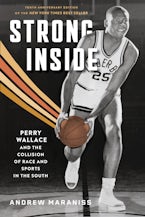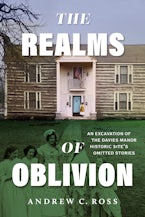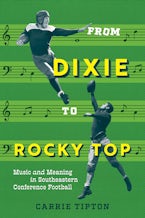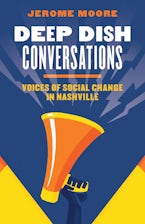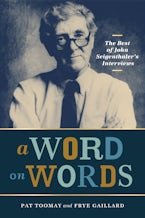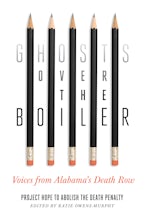- Home
- People Only Die of Love in Movies
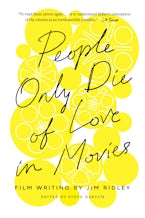
People Only Die of Love in Movies
Film Writing by Jim Ridley
by Jim Ridley
Edited by Steve Haruch
264 Pages, 6in x 9in
Combining a cineaste's encyclopedic knowledge of film with a child's sense of wonder, Jim Ridley wrote about movies in a way few others can.
He reveled in the joy and mischief of cinema, dwelled on its beauty and violence, and navigated the full breadth of its mythology with clarity and enduring curiosity that earned him the respect of critics around the country. At the time of his unexpected death in 2016, Ridley was editor-in-chief of the alt-weekly Nashville Scene, the paper where his incisive, wide-ranging film reviews won him a devoted readership beginning in 1989.
People Only Die of Love in Movies takes its title from a line in the 1964 movie musical The Umbrellas of Cherbourg, the subject of one of Ridley's best-known pieces, included in this volume. In all, the anthology collects nearly one hundred of Ridley's film reviews, essays, and journalistic works, expertly organized by editor Steve Haruch into writing by film genre (e.g., Westerns, the Nouvelle Vague), cinematic theme (e.g., heroes, sexuality), and writing style (e.g., negative reviews, narrative journalism) to demonstrate Ridley's range.
People Only Die of Love in Movies invites its readers to revisit favorite films, discover new loves, and immerse themselves in the unparalleled writing of a discerning and knowledgeable critic.
Chapter 1: The Nouvelle Vague
Lola
Band of Outsiders
Two English Girls
Fears in Public Places
Notre Musique
Chapter 2: How the Western Won
Once Upon a Time in the West
Four films by Sergio Corbucci
McCabe & Mrs. Miller
The Wild Bunch
The Ballad of Little Jo
Meek's Cutoff
Chapter 3: Heroes and Anti-Heroes
Batman Begins
Le Samouraï
Dragon: The Bruce Lee Story
Bonnie and Clyde
Thelma & Louise
Star Wars: Episode III—Revenge of the Sith
Chapter 4: Shorts
Rio Bravo
Meet Me in St. Louis
Point Blank
Taxi Driver
The Devil's Rejects
Four films feat. Ray Harryhausen
Point Break
The Warriors
Rock 'n' Roll High School
The Big Lebowski
300
Swept from the Sea
The Order of Myths
I Like It Like That
Sugar Hill
Tony Takitani
The Scent of Green Papaya
Ikiru
Chapter 5: Twin Cinema / Double Visions
Full Frontal / Signs
Singin' in the Rain / Chicago
Darwin's Nightmare / Grizzly Man
Boys Don't Cry / Fight Club
Femme Fatale
Point of No Return
A History of Violence
Summer of Sam
Passion
Touch of Evil
Actress
Mulholland Drive
Chapter 6: Phoners and Shoe Leather
Look Back in Anger: Robert Altman's Nashville, 20 Years Later
Fade to Black: Can the Watkins Belcourt Be Saved?
Intermission
Bruce Springsteen and the E Street Band at Bridgestone Arena, 4/17/14
Photo Gallery
Chapter 7: Innocence and Experience
Toy Story 2
Son of Rambow
Little Man Tate
Akeelah and the Bee
Pump Up the Volume
Boyz N the Hood
Moonrise Kingdom
Mister Lonely
Chapter 8: That Obscure Object
Turn Me On, Dammit!
Afterglow
The Notorious Bettie Page
The Piano
Gloria
Eyes Wide Shut
Carol
Chapter 9: A Boot the Size of Nebraska
Playtime
Rumble in the Bronx
Serial Mom
Jackass: The Movie
Pulp Fiction
Wayne's World
Orlando
The Fifth Element
Hot Fuzz
Chapter 10: Panning for Gold
Bad Boys II
Little Miss Sunshine
Texasville
The Messenger: The Story of Joan of Arc
Schindler's List
8MM
Chapter 11: Problem Pictures
Triumph of the Will
American History X
Army of Shadows
The Untold Story of Emmett Louis Till
Xiu Xiu: The Sent-Down Girl
Underground
To Live
Chapter 12: Forever Changes
After Life
The Last Picture Show
Mother and Son
Daughters of the Dust
The Long Goodbye: Robert Altman, 1925–2006
Taste of Cherry
The Umbrellas of Cherbourg
Acknowledgments
Index
Jim Ridley was a writer and editor at the Nashville Scene for more than twenty-five years, its resident film critic, and most recently the paper's top editor. Under his editorship, the Scene won forty awards from the Association of Alternative Newsmedia, averaging better than five per year. Ridley took home first place in arts criticism twice himself. He also contributed to other publications such as the Village Voice, the Criterion Collection, and Cinema Scope. As a champion of arts cinema, Ridley's advocacy helped save the Belcourt Theatre in Nashville from closure in the early years of the new millennium.
Steve Haruch is a writer, editor, and filmmaker based in Nashville. His work has appeared in the Nashville Scene, the New York Times, NPR's Code Switch, the Guardian, and elsewhere. He is currently producing a documentary film about the history of college radio.
"A moving tribute to a great American film critic, this collection brings together an exhilarating array of the best of Jim Ridley's writing, carving out clever pathways to guide readers through his far-ranging yet always very personal cinephilia—and through film history itself—and to paint a vivid picture of this beloved Nashvillian. The loss of Ridley's big-hearted and stylish voice left a giant hole in contemporary film criticism, but this book performs a great service by creating a permanent reminder of the magnitude of his writing and film-advocacy achievements. Thank you, Steve Haruch, for this labor of love."
—Liz Helfgott, Editorial Director, The Criterion Collection
"[I]mpeccably curated and edited by Steve Haruch. . . . To read these pieces again, rich in scholarship and suffused with pleasure, is to understand Ridley's conception of the cinema as an inexhaustible paradise."
--Justin Chang, Los Angeles Times
"Ridley is among those few 'reviewers' whose writing really does move into the realm of enduring film criticism. His examples are taken from the wide history of international cinema, and he makes unexpected connections between films that abide by a taste for cinema that is also, I want to say, an ethics of cinema. The organization of this volume brings Ridley's critical imagination to the fore."
—Jennifer Fay, Director of Cinema & Media Arts, Vanderbilt University
"In vibrant, often uproarious prose, the book chronicles a lifelong love affair with the cinema. Reading Ridley's reviews feels like having a jocular chat with a pal that takes an unexpectedly personal turn. . . . Expertly edited by former [Nashville] Scene staffer Steve Haruch, the book features 94 pieces, loosely grouped into 12 chapters according to genre or theme. It's an inspired approach, giving the informal sensation of Ridley riffing on his favorite topics, whether the Nouvelle Vague or Westerns. . . . [R]eading Ridley you can't help but think: here's a guy who really loved his job."
--Sean Burns, RogerEbert.com
"I've been reading a collection of [Jim Ridley's] pieces put together by . . . Steve Haruch called People Only Die of Love in Movies. It will be published in June and you should get it. It's really good."
--David Edelstein, New York magazine
"[T]here's such a wide range of films covered in People Only Die of Love in Movies, and so much unique insight into why they matter, that the book doubles as a sweeping cinematic history lesson and an introduction to an immensely likable human being. . . . [T]he writing's so vibrant and detailed that it invites readers into [Ridley's] head, where different cultures--high and low, and from around the globe--coexisted agreeably."
--Noel Murray, Village Voice


